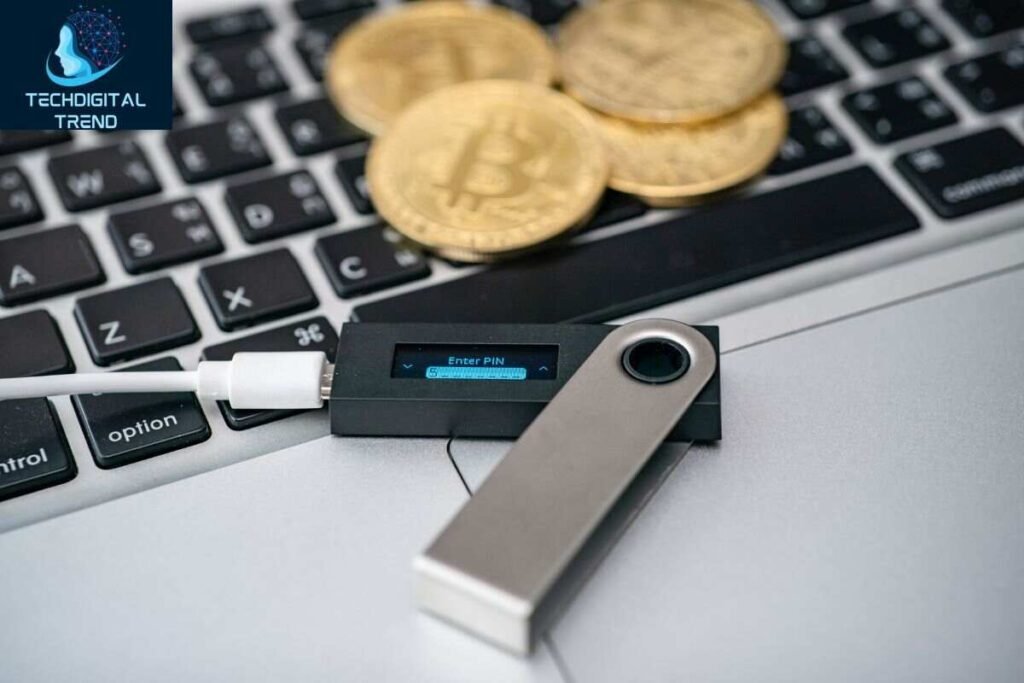Hardware wallets have become popular among the several choices available for storing bitcoin. as the benchmark for safety and defense against unwanted access. Additionally, by visiting Trade 500 Proair, you may locate an investing education firm to begin your learning process. Brands of hardware wallets that are well-known include Trezor, KeepKey, and Ledger. The revolutionary class of digital assets that is cryptocurrency has come to be. granting its users financial sovereignty and decentralization.
However, with the increasing adoption of cryptocurrencies. The risk of theft and hacks has also escalated. Because of this, one must implement robust security measures to safeguard their digital assets.
Table of Contents
ToggleWhat Are Hardware Wallets?
Physical wallets called hardware wallets are made specifically to safely keep private keys. That provides access to Bitcoin assets. Hardware wallets keep private keys offline, greatly lowering. The danger of hacking or unauthorized access, in contrast. Software wallets store these keys on internet-connected devices like computers or smartphones. Brands of hardware wallets that are well-known include Trezor, KeepKey, and Ledger.
How Hardware Wallets Work
The separation of the private keys from devices connected to the internet is the basic idea underlying hardware wallet security. The hardware wallet uses the private key that is kept on the device to sign transactions that are started by users. By preventing the private key from ever leaving the hardware wallet. This procedure makes it nearly difficult for hackers to steal.
Advantages of Hardware Wallets
Comparing hardware wallets to alternative bitcoin storage methods reveals a number of benefits:
Security: Hardware wallets are impervious to hacking efforts aimed at internet-connected devices since the private keys are kept offline.
Usability: Hardware wallets are easy to use, especially for those with little experience with technology because of their intuitive interfaces.
Compatibility: A multitude of cryptocurrencies may be stored on a single hardware wallet since most of them offer this feature.
Security Features of Hardware Wallets
Hardware wallets include some security measures to guarantee that users’ digital assets are protected, including:
PIN Protection: To provide an additional degree of protection against unwanted access, users must set up a PIN to access their hardware wallet.
Hardware wallets keep private keys behind encryption, which makes it very difficult for hackers to decode them.
Secure Chip: Many hardware wallet come with secure chips that are challenging to physically tamper with, providing an additional layer of protection to the device.
Protection Against Common Attacks
Hardware wallet offer robust protection against various types of attacks:
Phishing: Phishing attacks, which target users through phony websites or emails, cannot affect hardware wallet since they require physical contact to approve transactions.
Malware: Hardware wallet don’t need internet-connected devices for operation. They are immune to malware attacks that target software wallets or PCs.
Physical Theft: Hardware wallets are secured with PINs and encryption, making it very impossible for criminals to access the money kept inside the device. even in situations when actual theft occurs.
Tips for Using Hardware Wallet Safely
To maximize the security of their hardware wallet, users should follow these best practices:
Safe Storage: To avoid unwanted access, keep the hardware wallet and the recovery seed in a safe place, such as a safety deposit box or a safe.
Strong PIN: Select a PIN that is challenging to figure out and stay away from choosing combinations that are simple to figure out. Such as consecutive numbers or birthdays.
Frequent Firmware Updates: Make sure the hardware wallet’s firmware is up to current to get the newest security patches and improvements.
Backup and Recovery: To reduce the chance of loss or damage, make many backups of the recovery seed and keep them in different, safe places.
Conclusion
The security and safety provided by hardware wallet for holding Bitcoin assets are unmatched. Hardware wallets give customers peace of mind by utilizing advanced security features like encryption, offline storage, and other safeguards to protect their digital assets from theft and illegal access. All investors and enthusiasts should place a high premium on security as the Bitcoin ecosystem develops further. People may safely protect their money and take part in the digital economy by using hardware wallet as their chosen storage option.
Open this link: https://securelifefitness.com/what-type-of-protein-do-young-people/















